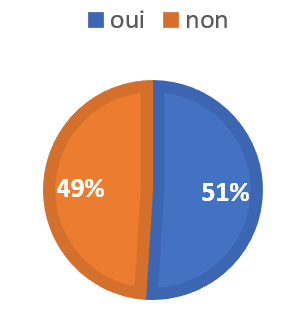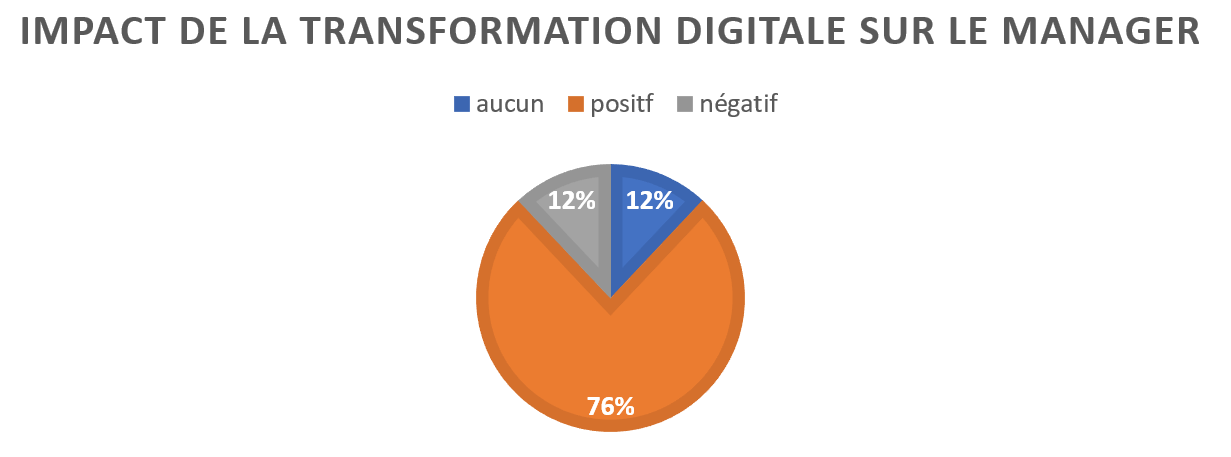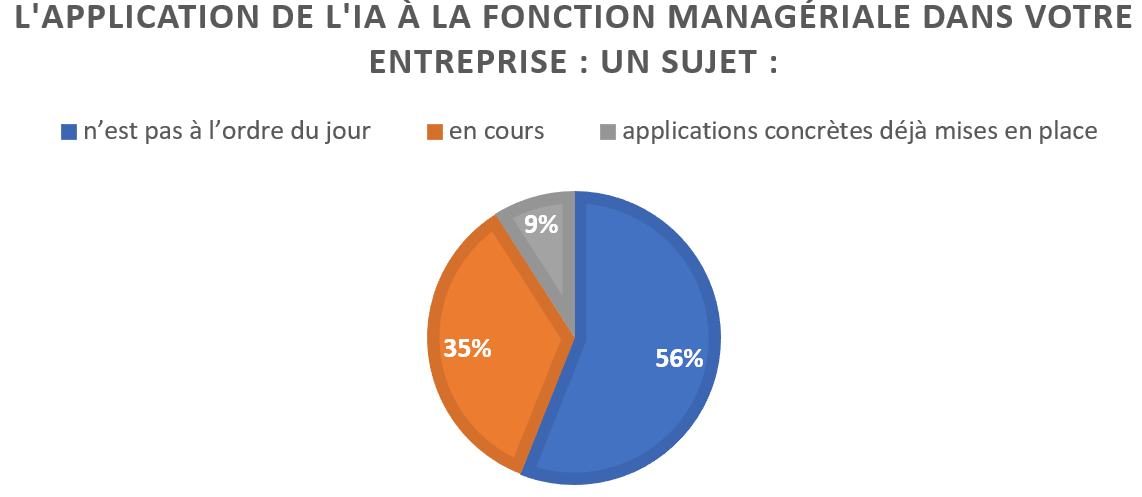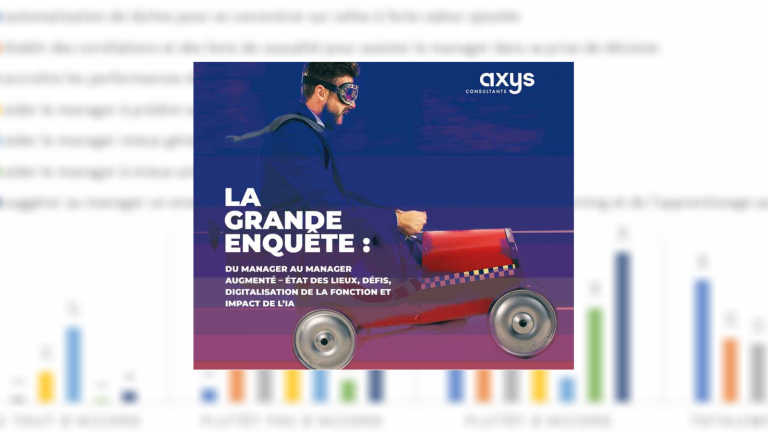
How are artificial intelligence and digitalization changing the manager’s job? This is the question that Axys Consultants is trying to answer in a vast survey of 232 managers.
How do managers view their job, its evolution, what are their main missions and challenges today? Has digitalization changed their job? How do they welcome the arrival of new technologies such as artificial intelligence? What AI solutions do they have or plan to deploy and for what concrete uses? What are their fears and expectations of this technology and has it helped them in the context of remote management? Axys Consultants interviewed more than 230 managers to understand the changes brought about by digitalization and AI.
Survey conducted from January 3 to February 15, 2021 with 232 managers from all business sectors – detailed panel at the end of the study
The main challenges facing managers
21% of managers spend more than 50% of their time managing activities and making decisions
Leading teams is the second most important task (14%). In last position, 5% of them are involved in defining and implementing strategy
The first challenge for managers: project management, but human resources management remains a priority
The 5 activities considered as the most important are :
- 53%: manage projects
- 51%: develop the skills of teams
- 51% ex-aequo: improve individual and collective performance
- 49%: recruiting the right profiles
- 46%: motivate teams.
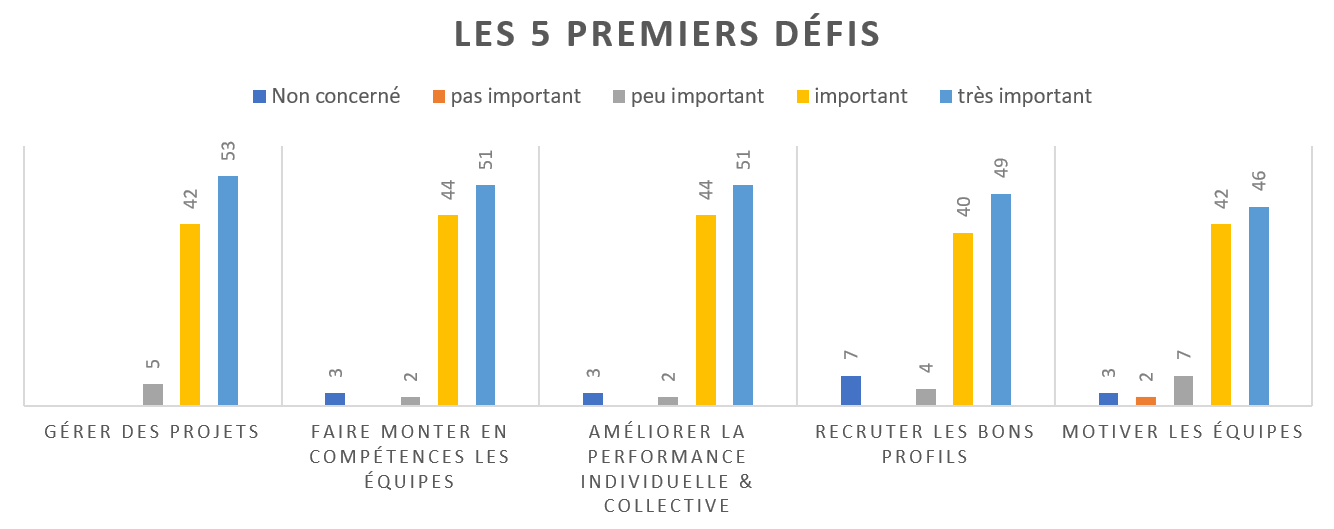
Apart from project management, which falls under the category of “activity management and decision making”, the other 4 are related to team leadership. Managers make human resources management a priority.
The most important thing for each major type of mission :
- In terms of steering activities and making decisions: project management (53%)
- In terms of leading teams (supervision, motivation, etc.): increasing their skills, tied with improving individual and collective performance (51%)
- In terms of defining and implementing strategy: participating in its development (39%)
We note that 90% of managers are satisfied with their results but in demand for budget and staff to maintain/improve them.
An increase in the budget is considered the first factor capable of improving these results (30%), followed by an increase in staff (19%) and more appropriate methods (14%). Digitalisation of tools ranks 4th (11%).
Training comes last with only 5% of the votes, tied with less reporting.
Managers under pressure: 90% of managers have noticed an acceleration of change since taking up their position and 81% an increase in their workload.
Next comes an increased demand for reporting for 59% of them. Despite these tensions, they manage to cope: they rank last – but with high percentages – a greater complexity in managing teams (38%) and in drawing up the budget (36%) ex-aequo with an increased difficulty in communication.
The manager of tomorrow: an augmented manager?
Tomorrow’s manager will have to develop his empathy/benevolence (26%), his ability to create links (20%) and to go outside the box (17%)
The notion of the augmented manager
A small majority of managers (51%) are familiar with the concept of augmented management
The profile of the augmented manager: agile, AI-assisted and collaborative

According to the participants, the first criterion qualifying an augmented manager is :
- 41%: agility
- 22%: assisted by AI
- 19%: the ability to work collaboratively
- 9%: the ability to sort through infobesity
- 6%: mastering design thinking methods
- 3%: able to perceive weak signals
3 – A balance between technology and human
Managers are slightly more likely (84%) to believe that tomorrow’s management will be more technological than more human (80%). What emerges from these figures is that the manager of tomorrow will have to act on these 2 levers to ensure its missions.
As for the verticality of management, more than a quarter (27%) believe that it will be increased.
The manager facing digitalization and AI
88% of managers believe that digital transformation has had an impact on their job, 76% of them positively.
The application of AI to the managerial function: a strong margin for progress
Concrete AI solutions for managers have been implemented for only 9% of them, while 35% are working on the subject. Nevertheless, for the vast majority (56%) this subject is not on the agenda.
Insufficient information on AI
caption id=”attachment_26151″ align=”alignnone” width=”1335″]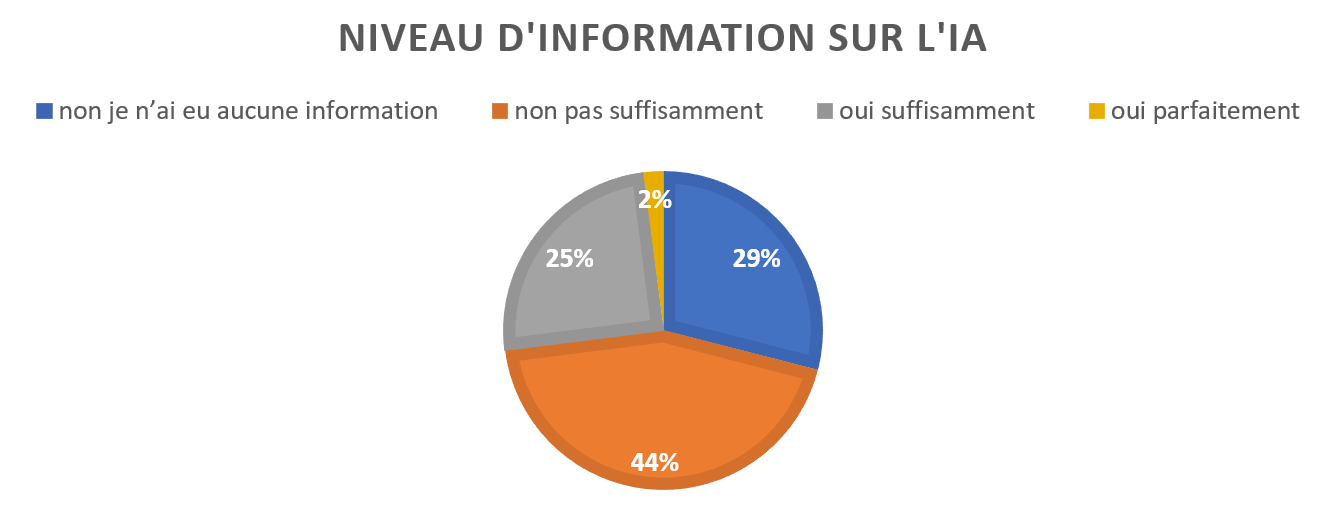 Managers’ level of information on AI[/caption]
Managers’ level of information on AI[/caption]
Only a quarter of managers (25%) feel they have been sufficiently informed about AI and 2% have been perfectly informed. 44% consider it insufficient and 29% have not received any.
AI welcomed by managers, automation favoured by 44%.
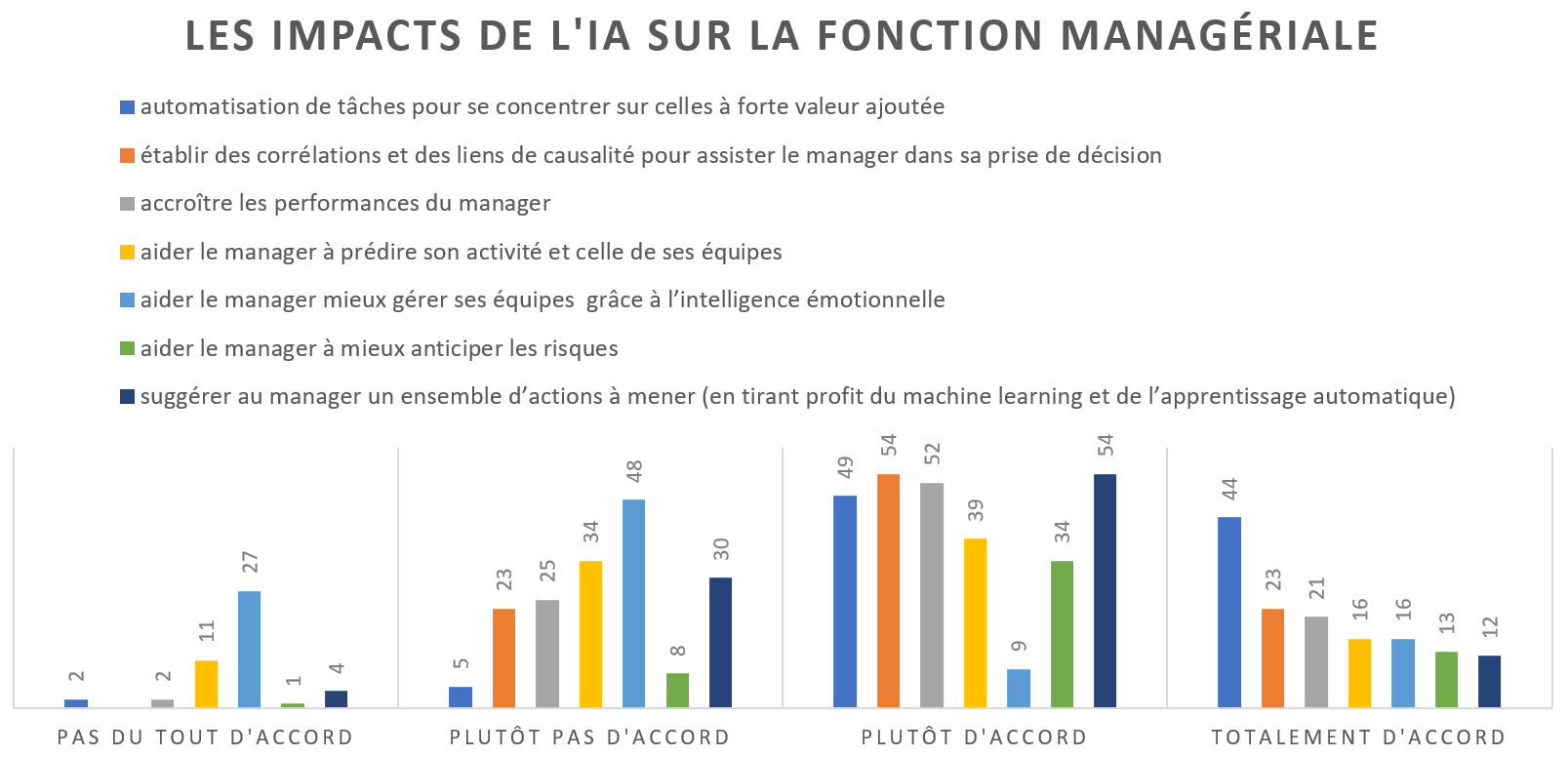
Managers are well aware that AI has or will have consequences on their function and that they are or will be beneficial. Some of them gather an unwavering support and they agree 100% with the following statements: AI will allow :
- 44%: automation of certain tasks in order to concentrate on those with high added value
- 23%: to establish correlations and causal links to assist the manager in his decision making
- 21%: increase the manager’s performance
- 16%: help managers predict their activity and that of their teams
- 16%: help managers manage their teams better thanks to emotional intelligence
- 13% : help the manager to better anticipate risks
- 12%: suggest to the manager a set of actions to be taken (by taking advantage of machine learning and automatic learning)
The top five AI solutions deployed are also the ones that give the most satisfaction
For managers benefiting from AI solutions, we find:
- 40% of data collection and analysis tools -prediction and forecasting- (19% of managers satisfied, 5% dissatisfied and 16% with no opinion because the solution is too recent)
- 40% conversational assistants – Chat bot / Voice bot (19% satisfied, 7% dissatisfied and 14% no opinion)
- 35% semantic search engines – database/knowledge base/ wiki- (15% satisfied, 10% dissatisfied and 10% no opinion)
- 25 % of solutions for assessing the state of mind/mood of employees (14 % satisfied, 5 % dissatisfied and 6 % no opinion)
- 22% of automation of managerial tasks – recruitment, reporting, time management… (10% satisfied, 3% dissatisfied, 9% no opinion)
Given the deployment intentions within 18 months, we will find the same solutions, in a slightly different order for the last two. For companies with plans to invest in AI:

Training/acculturation to #ArtificialIntelligence: the first brake to #IA deployment at 33% according to @AxysConsultants study Share on X
The fear of being replaced by a robot is next at 20% and ethical issues at 17%
Effects of the pandemic: AI to the rescue of new remote management methods?
Ensuring the psychological/moral health of employees was the first difficulty encountered by managers (69%) who had to organise teleworking. Next came the problem of maintaining team cohesion (60%) and motivation (48%)
23% of managers have used AI solutions to facilitate telework. 77% have not used AI tools because they are not used to doing so
Translated from Enquête : Du manager au manager augmenté – état des lieux, défis, digitalisation de la fonction et impact de l’IA

